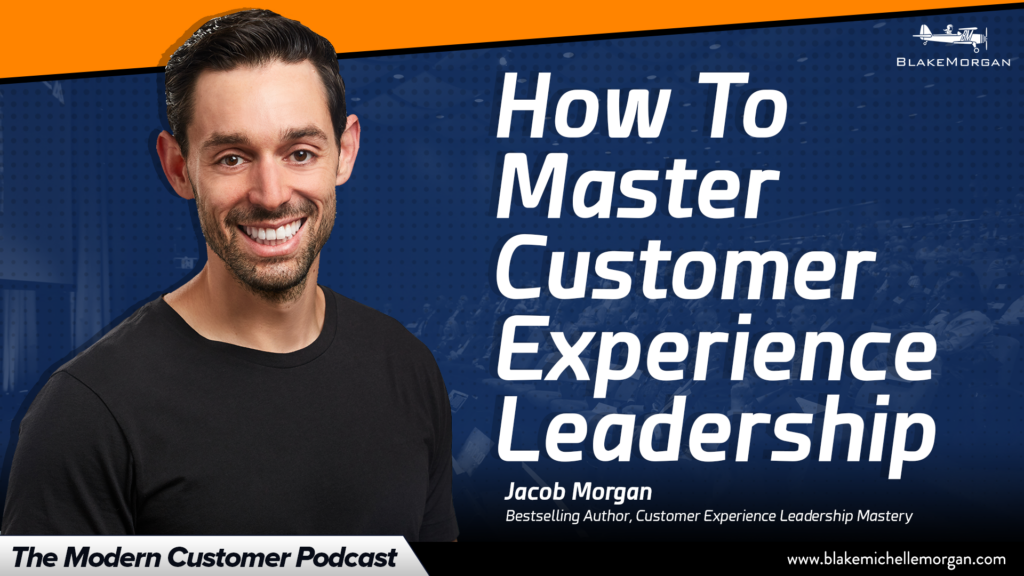A customer focus and strong customer experience starts from the top. In order for companies to be totally customer-centric, they must have strong leaders.
However, we’re facing a leadership crisis today where most leaders don’t know how to lead. Jacob Morgan (who just happens to be my husband) is a best-selling author and expert on leadership and the future of work. As he was conducting research for his book, The Future Leader, he came across this startling statistic: most people become leaders in their mid to late 20s, but they don’t receive formal leadership training until their late 30s or early 40s. That means most leaders go more than a decade without any training. No wonder we have such a lack of strong leadership.
To be effective, leaders have to take training into their own hands. The first step is to create your own definition of leader and leadership. We are surrounded by leadership, but few of us can actually define it. Establishing a definition allows companies to create filters for who they hire and promote. Those filters ensure that the organization is filled with consistently great leaders instead of a mix of great and sub-par leaders.
Jacob’s definition of leadership is being a lighthouse. The purpose of a lighthouse is to shine light on ships in the harbor and guide them to safety and success. Similarly, a leader’s purpose is to guide their people and organization to success. But a leader lighthouse is useless without ships. Leaders can’t just focus on themselves—they must focus on others.
From interviews with more than 140 top CEOs, Jacob created the Notable Nine: the skills and mindsets leaders need to adopt to succeed in the future of work. These skills are crucial to becoming a customer-focused leader and creating a culture of customer centricity.
Mindsets
- Explorer: Become a perpetual learner, be curious and focus on agility and adaptability.
- Chef: Balance humanity and technology.
- Servant: Serve your leaders, your team, your customers and yourself by being humble and vulnerable.
- Global citizen: Surround yourself with different people and look at the big picture.
Skills
- Futurist: Look towards the future and think through different scenarios.
- Yoda: Practice emotional intelligence and empathy.
- Translator: Develop listening and communication skills
- Coach: Motivate and engage others and create effective teams across geographies and generations.
- Technology teen: Embrace new technology and be tech-savvy.
A common element for all leaders, especially those leading through the current uncertainty of COVID-19, is to focus on people, not profits. Successful leaders develop their people, set a vision, engage and coach them to be more successful. They are focused more on engaging their employees than hitting their quarterly revenue goals. As Jacob says, putting people first is a philosophy backed by a set of actions. Don’t just believe it—you have to show it.
Customer experience leadership impacts the entire organization. In order for a business to succeed, leaders must focus on people and strive to become lighthouses that guide others to success.
Blake Morgan is a customer experience futurist, keynote speaker and the author of the bestselling book The Customer Of The Future. Sign up for her weekly newsletter here.

